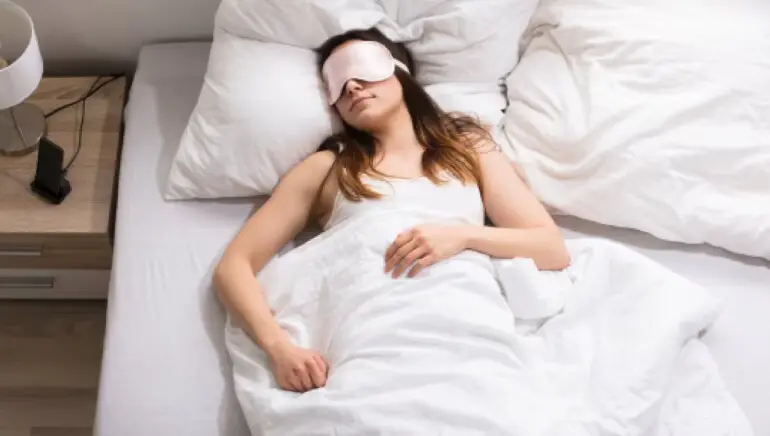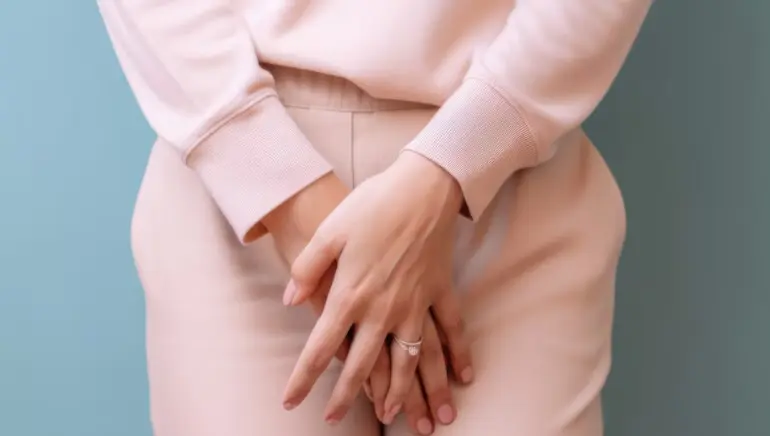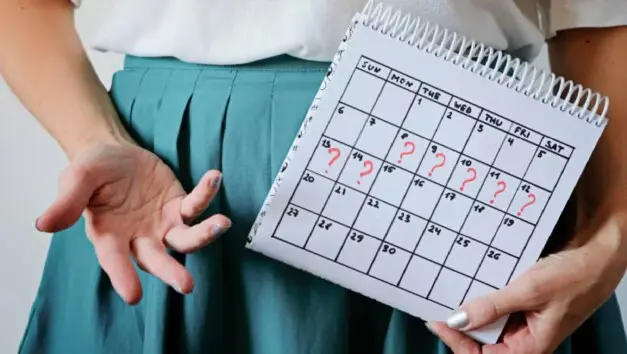10 Tips to Prevent Period Leaks at Night
Do you get period leaks at night? To sleep well, try these simple and effective methods for preventing leaks at night.
View all images.
You may avoid period leaks at night by following a few easy techniques. Image credit: Adobe Stock.
Periods can make it difficult to get a decent night’s sleep, especially if you are concerned about leaks. Period leaks at night can be annoying. Nothing is worse than discovering a trickle of blood on your bedding or clothing. The good news is that there are easy methods for preventing leaks and managing overnight flow. Not only that, but you may select the appropriate period product to assist you control your periods at night and sleep well.
Also Read: How to avoid period leaks at night
What causes menstrual leakage during night?
Period leaks at night are a typical concern for many women, but they are controllable. Here are some of the most prevalent causes, as discussed by gynaecologist and obstetrician Dr. Madhu Juneja.
Also Read
Vaginal discharge that is pink might have several reasons. Picture sourced from Adobe Stock
1. Heavy menstrual flow.
A heavy flow may surpass the capacity of the menstrual product, resulting in leaking. According to a 2023 research published in the StatsPearl Journal, the usual menstrual cycle lasts 4-9 days and results in blood loss of less than 80 millilitres.
Period leaks at night are a regular issue. Image credit: Adobe Stock.
2. Movement during sleep
Tossing and turning during sleep might cause your pad or tampon to clump up or move, leaving exposed regions. This is especially important for people who sleep on their stomachs, since this posture may put pressure on the uterus, thereby increasing flow. However, further study is needed to back up the assertion.
3. Incorrect product use.
Incorrectly positioned tampons, pads, or menstrual cups might result in poor absorption and leaking. Thus, it is strongly advised to place period products with caution and following correct rules to avoid leaking, particularly at night.
4. Insufficient absorbency.
Maybe the pads or tampons you use throughout the day aren’t enough for overnight protection. Regular pads may not be long enough at the rear to avoid leaks, and tampons may not be absorbent enough to accommodate your flow. Using items that do not match the heaviness of your flow may lead them to become saturated faster.
5. Extended wear time
Overnight sleep results in prolonged periods without changing menstruation products, which might cause leakage if the product is not intended for long-term usage. So, if your flow is heavy, your chosen product is more likely to hit its absorbency limit.
6. Sleeping Position
Certain sleeping postures, such as laying on your stomach, might increase the probability of abdominal pressure, leading to nighttime period leaks. However, further study is needed to back up the assertion.
Sleep appropriately to avoid nightly period leaks. Image credit of Freepik
7. Wearing tight clothing.
Loose or incorrectly fitted underwear can allow pads to wander about, increasing the likelihood of leaking. Thus, it is recommended that you wear well fitted underwear to prevent pads from moving while you sleep.
8. Product quality.
Lower-quality menstruation products may not provide appropriate leak protection, particularly overnight. It is usually suggested that you contact with your doctor or healthcare practitioner before purchasing period products to assist you avoid nighttime period leaking.
How can I avoid period leaks at night?
Dr. Juneja has proposed some simple measures to help reduce nighttime period leakage.
[web_stories title=”false” excerpt=”false” author=”false” date=”false” archive_link=”true” archive_link_label=”” circle_size=”150″ sharp_corners=”false” image_alignment=”left” number_of_columns=”1″ number_of_stories=”5″ order=”DESC” orderby=”post_title” view=”circles” /]
1. Select the appropriate menstruation product.
- nighttime pads: usage pads made exclusively for nighttime usage. They are often longer and more absorbent.
- Menstrual cups can last up to 12 hours and retain more fluid than tampons or pads.
- Tampons: If you have a heavy flow, use high-absorbency tampons, but be aware of the danger of toxic shock syndrome (TSS) and replace them frequently.
- Period panties are meant to be leak-proof and may be worn alone or as an additional layer of protection.
2. Double up.
- Tampon + pad: Combining a tampon or menstrual cup with an overnight pad might offer further security.
- Pad plus period panties: Wearing a pad with period panties provides extra levels of protection.
3. Proper positioning
- Ensure that tampons and menstrual cups are properly inserted and placed. Also, ensure that your pad is correctly positioned and clings effectively to your underpants. This can help you avoid leaking and allow you to sleep easily and peacefully at night.
4. Adjust your sleeping posture.
Sleeping on your favored side is suggested since it relieves strain on your abdomen and reduces the possibility of leakage. Avoid sleeping on your stomach, as this posture might increase the probability of leaks owing to abdominal pressure. However, further study is needed to back up the assertion.
5. Use additional protection.
Place a towel or period-proof blanket on your bed to cover your linens in case of a leak. For extra piece of mind, consider investing in a waterproof mattress protector. This simple gesture will provide extra protection against period leakage.
6. Change before bedtime.
To optimize absorbency, use a new tampon, pad, or menstrual cup shortly before bedtime. This practice promotes good personal or period hygiene and offers total protection against leaking at night.
7. Wear snug-fitting undergarments.
Make sure your underwear fits tightly to keep your pad or period panties in place. This is an extremely crucial issue to consider while using sanitary pads. If your sanitary pads are not correctly fitted, you risk experiencing nighttime leaking.
8. Use period products with wings.
Pads with wings might assist keep them in place and offer further protection against side leaks. If you want to sleep with sanitary pads, it is advised that you choose sanitary pads with wings, which provide additional protection against period leaking.
9. Observe your flow.
Keep track of your menstrual cycle to determine when your flow will be stronger and take additional measures on those evenings. It is recommended that you keep track of your period flow in a diary or on an app. So, to avoid leaks, pick your period product properly.
10. Consider menstrual discs.
Menstrual discs are great for extended wear. They may be worn for up to 12 hours and are positioned differently than cups, which may be more comfortable for certain people, particularly at night.
Health Conscious Plus
Welcome to Health Conscious Plus Find health insights, disease management tips, meal plans, and mindful living strategies for a healthier life.




